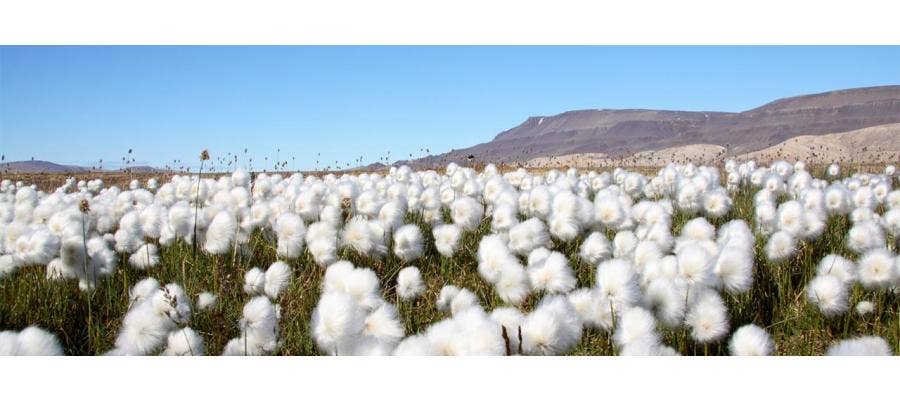
Did you know that cotton is the most chemically-treated crop out there?
We’re not kidding — after being processed, typically-grown cotton often becomes ridden with many dangerous toxins, such as GMOs, pesticides, formaldehyde, aromatic solvent, heavy metals, chlorine bleaching, and other toxic chemicals.
Unfortunately, this cotton finds its way into many of the products we use, wear, and sleep on every day.
Since cotton is the most-used natural fiber in the world, it’s a true staple of the textile industry and of our daily lives — but this doesn’t mean it’s necessarily good for you and your health. Like all things that are in high demand, many growers resort to artificial means of production and use questionable pesticides to make their cotton grow faster.
Luckily, there is a better alternative to conventional cotton farming and, yes, it is indeed healthier for you.
What is organic cotton farming?
Organic cotton farming is an agricultural technique that prioritizes the healthful production of natural cotton, which in turn supports the health of consumers.
Organic farmers use biological fertilizer inputs and management practices, such as crop rotation and cover cropping, to improve the quality of the soil. In turn, improved soil matter allows the cotton to better resist insects and diseases without any need for harmful insecticides, herbicides, or pesticides.
Organic cotton farming also refrains from using any genetically-modified seeds, synthetic chemicals, or fertilizers. Some of the essential characteristics of organic cotton production include implementing an organic system, tracking the products from field to sale, and keeping a detailed record of the process.
Is organic cotton farming really better?
In the past, products made with organic cotton were seen as luxury, high-end items like premium towels, clothing, and bed linen.
But now that the organic movement has taken off and more consumers than ever before are looking to buy natural, healthier goods, the truth about organic cotton farming — and organic farming in general — has been revealed.
Not only does organic cotton farming encourage the healthy production of pure, cotton fibers, but it also has a surprising amount of benefits for the environment.
Organic cotton farming utilizes less energy, produces fewer greenhouse gases, improves soil and water quality, and promotes biodiversity. In fact, the global warming potential of organic cotton is 46 percent lower than conventional cotton.
This is because organic farms use production practices that keep the environment top-of-mind, such as water management, minimum or no tillage, habitat maintenance, and biological pest control.
Ultimately, these good practices allow organic cotton farmers to contribute to enhanced ecosystem services and promote biodiversity in an extremely positive way.
The trouble with conventional farming techniques
On the flip side, conventional farming techniques present a number of concerns for both consumer health and the environment.
To keep up with demand and produce cotton as fast as possible, conventional growers douse their crop in synthetic pesticides, herbicides, and insecticides. These chemicals not only destroy ecosystems and ruin soil, but they also remain in the cotton fibers long after they’ve been processed and sold — which means they’ll make their way into your home.
You might be thinking: I’ve used regular cotton products for years — what’s the big deal?
While you might not confront the consequences for many years, the World Health Organization has reported that there have been over 20,000 deaths from pesticide poisoning, with 10,000 farmers dying from cancers related to these toxins. This is quite a scary reality, making organic farming all the more appealing for the sake of human health.
Furthermore, farming conventional cotton uses nearly 25 percent of the world’s insecticides — more than any other crop in the world, including GMO corn! And, it also uses 10 percent of the world’s pesticides. These facts don’t lie: conventional farming is dangerous, potentially harmful to human health, and terrible for the environment.
---
Being informed is half the battle! Now that you know about the health risks involved in conventional cotton farming and its negative impact on the environment, you can choose to adopt a more organic lifestyle for all of the advantages it brings.
At Happsy, we use only the best organically-grown cotton that’s strictly grown and processed to the exacting standards of the Global Organic Textile Standard (GOTS). This means every single one of our cozy mattresses comes without the pesticides, toxic dyes, GMOs, and other chemicals that are typically included in conventional mattresses. We choose organic farming because it’s the best choice for you (and for the Earth!)
